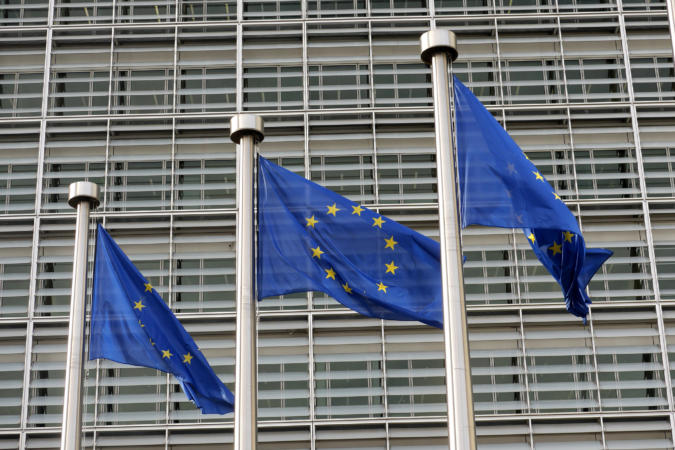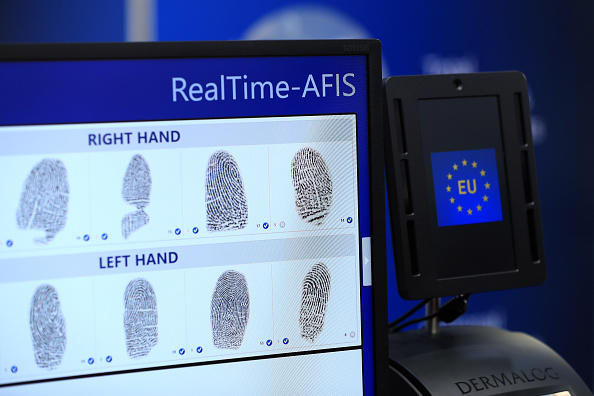Showing 6 results for:
European Union
Popular topics
All results

Today, the EU released a report detailing the actions it has taken in partnership with major tech companies —Twitter, Google, and Facebook — to combat the spread of fake news. Since 2015, the European Commission has taken steps to fight misinformation online by providing self-regulatory guidelines for companies, establishing a Code of Practice for the platforms and advertisers, and pushing for increased transparency on the political ad policies on social media websites. Despite all of that, the Commission said that there was still an influx of targeted online attacks on the platforms ahead of recent EU elections. The Commission is now calling on tech companies to do more to stop the spread of fake news. The Commission said in its report: “…all online platforms need to provide more detailed information allowing the identification of malign actors and targeted Member States They should also intensify their cooperation with fact checkers and empower users to better detect...

Last year, the European Union’s General Data Protection Regulation officially went into effect after a two-year transition period. The regulations make up some of the strictest data laws in the world. So, it’s no surprise that the EU has placed tech companies under increased scrutiny. Tech giants like Google have received multiple fines from the EU for antitrust behavior. Now that seems to be rubbing President Trump the wrong way, but not because he doesn’t think the fines shouldn’t be happening. In an interview with CNBC on Monday , Trump said: “Every week you see them going after Facebook and Apple and all of these companies … The European Union is suing them all of the time. Well, we should be doing this. They’re our companies. So, [the EU is] actually attacking our companies, but we should be doing what they’re doing. They think there’s a monopoly, but I’m not sure that they think that. They just think this is easy money.” Trump calls for the federal govt to sue tech & social...

In March, Spotify shook the table when the company accused Apple of stifling competition through its “Apple tax.” Notoriously, Apple takes a 30 percent “tax” cut from any subscriptions made in its App Store. Now, Apple may be facing some repercussions. According to the Financial Times , three unnamed sources confirmed that the European Union has decided to launch an antitrust investigation into Apple. If the EU does launch an investigation, the Financial Times reported that they can make Apple change business policies deemed unlawful and issue fines of up to 10 percent of a company’s global turnover. “If we pay this tax, it would force us to artificially inflate the price of our Premium membership well above the price of Apple Music,” Spotify CEO Daniel Ek said in a March blog post . “And to keep our price competitive for our customers, that isn’t something we can do.” In addition to Apple’s Tax, Spotify claimed that Apple restricts music-streaming services in competition with its...

For those planning future travels within the European Union, your experience might become a little more interesting. Last week, the European Parliament voted to connect border-control, migration, and law enforcement systems into a database on both EU and non-EU citizens. The Common Identity Repository (CIR) will combine biographical identities, compile biometric data, and make it available to law enforcement and border authorities. In a statement , Rapporteur Jeroen Lenaers said: “Without changing access rights or endangering the data protection rules that govern them, interoperability will ensure faster, more systematic and more complete access to EU information systems for professionals on the ground: police officers, border guards, migration officers and consulate staff members, in order for them to do their job better. Better decisions can be made on the basis of better information.” Generally, biometric data refers to physical characters that can be measured or calculated. In...

In the weeks following the Christchurch shooting — which spread rapidly across the internet — countries around the world have considered implementing new laws to prevent a repeat. Australia even proposed a bill that included possible prison time for executives whose companies failed to “expeditiously” remove violent content. On the other hand, the European Union, actually passed a new law. On Wednesday, the EU Parliament voted to fine big companies — like Facebook, Google, and Twitter — if they failed to quickly remove requested content. Under the law, “terrorist content,” should be removed within an hour. That includes any text, images, sound recordings or video that incites or solicits terrorist offenses, provides instructions to commit such offenses, or solicits the participation in activities of a terrorist group. Any companies who “systematically and persistently” fail to do so may face fines of up to 4 percent of their global turnover. However, for small companies who haven’t...

Questions around AI and ethics are becoming more prominent. Now, some governments are developing their own answers. On Monday, the European Union released a series of guidelines for the development of “trustworthy” artificial intelligence. In June 2018 , the EU appointed a group of independent experts to a high-level group on AI. The EU is hoping to build on that group’s work by releasing a three-step plan to solve the issuing, one of which will include seven recommendations for fostering “trustworthy AI.” “The ethical dimension of AI is not a luxury feature or an add-on,” Andrus Ansip, EU vice-president for the digital single market, said in a press release. “It is only with trust that our society can fully benefit from technologies.” The EU’s seven key recommendations include transparency, human agency and oversight, societal and environmental well-being, and privacy and data governance for citizens. These guidelines mark one of the first government-led initiatives to address AI...